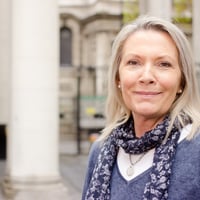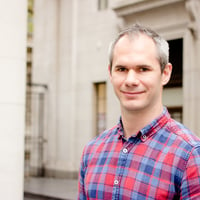#HC-04-03 English for Healthcare
About Course
King's College LondonDescription
Learn the language and vocabulary of healthcare professionals.
The language of healthcare can be complex. On this course, you will develop your English language skills and learn vocabulary for a career and study in healthcare.
You will learn healthcare terminology and how to communicate in different professional situations. You will practise your listening skills with recordings of healthcare professionals and test your knowledge by writing the answers to discussion questions.
Upon completion of this course, you will feel more confident using healthcare language and you will have explored what it’s like to use these language skills in a healthcare setting.
What topics will you cover?
- Working and learning in the hospital
- Experiences of patients
- Symptoms and diagnoses
- Taking notes and clear communication
- Working in different healthcare contexts: Caring for patients in the home; Healthcare interventions in the community.
- How to write reflectively
Who will you learn with?
Sophie has worked as an English Language Teacher since 1992. She holds an MA in English Language Teaching and Applied Linguistics. She is currently an EAP tutor at King’s College London.

Alison has been teaching English since 1985 and holds a BA in English Literature and an MA in Applied Linguistics. For the past three years she has been teaching EAP at King’s College, London.

Craig has taught English at HE institutions in the UK and abroad. He holds an MA in Applied Linguistics, PgCert in ELT and FHEA. He currently teaches at King’s College London.
Who developed the course?
King’s College London, established in 1829 and a founding college of the University of London, is one of the world’s leading research and teaching universities, based in the very heart of London.
What Will I Learn?
- Apply language skills to a range of healthcare contexts and situations. For example: using adjectives to describe symptoms, using vocabulary related to problems/solutions and causes/effects
- Interpret different genres typical of healthcare, including instructions, notes, reflective journals, registration forms
- Explore new vocabulary and terminology relating to healthcare
- Identify suitable communication modes for different professional situations, for example when giving instructions to patients
- Reflect on your learning, and practice writing a reflective journal. Apply language skills to evaluate your experiences
- Collect and record medical information by reading and listening for specific information
Topics for this course
In the hospital or clinic
what you’ll learn this course00:00:59
Please tell us about yourself
Meet the team
Michael’s study tips
How to use this course
Visiting the hospital
The vocabulary of the hospital
Registering at the hospital
Listening: a patient registers over the phone
Reflection
This is a good course for public diplomacy, from which we can explore intercultural dialogue and contacts between different countries.
I learnt to be more assertive but consider others as well. Listen, think first and then reply. Friendly words but be more direct. very helpful. So glad i took this course.
I thoroughly enjoyed this course. It captured my interest from the beginning. The ideas were well planned out and easy to digest.
Very easy listening. good training. The course was very educational with the working in different healthcare contexts and Caring for patients in the home. Good job!




